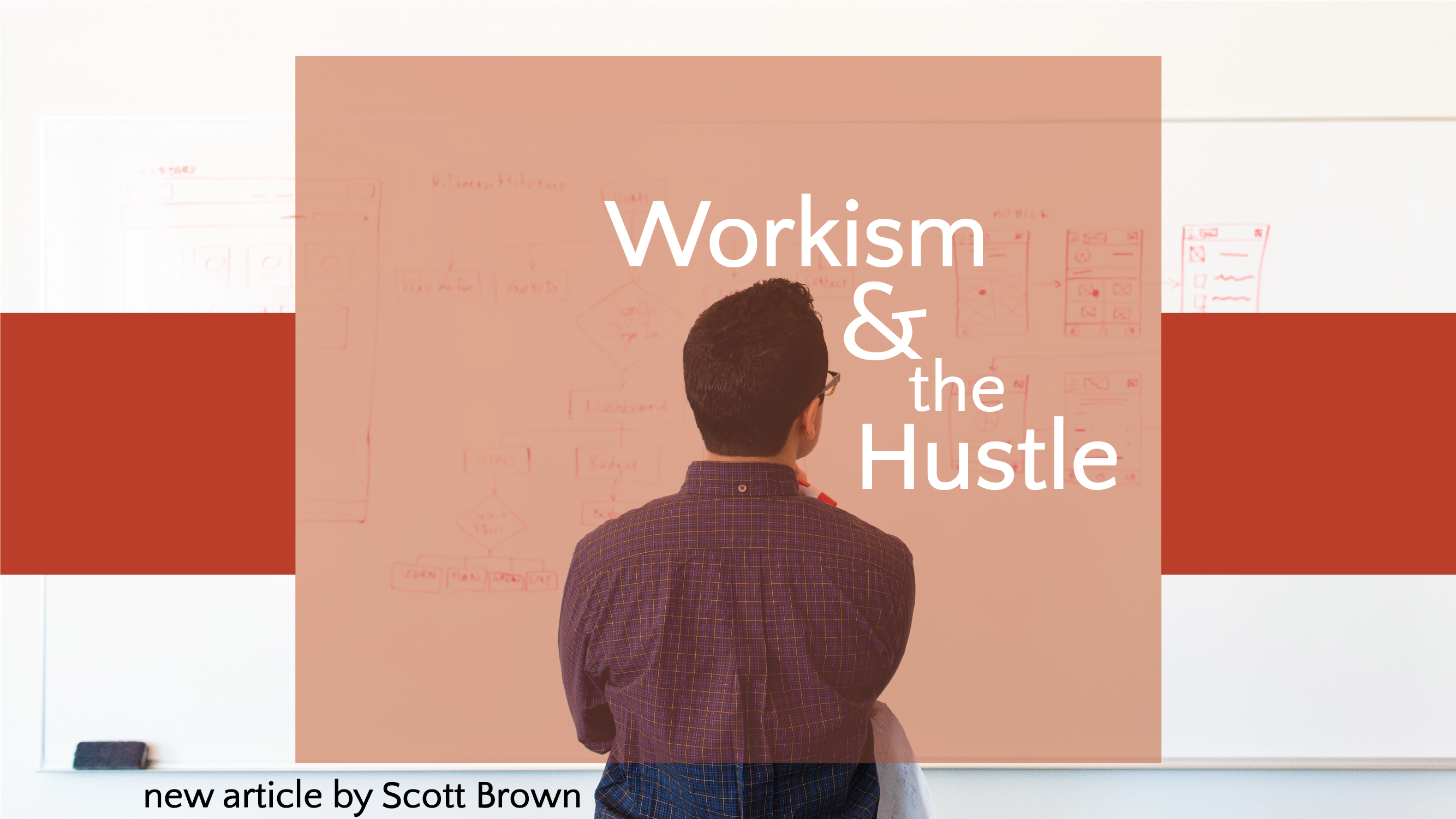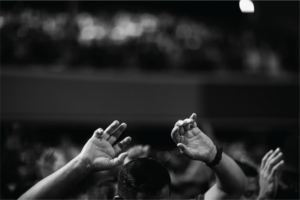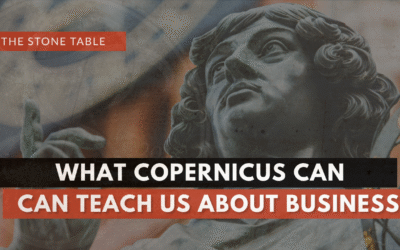Workism and the Hustle

Workism and the Hustle
Workism is a concept that has been touched on several times at The Stone Table. It is something that continues to pervade our society and work environments daily, and something that appears likely to continue to creep up in increasing measures as time goes on.
I think humans are naturally inclined to grasp for things to worship. We were created to worship! However, we were created to worship God, the Creator of heaven & earth, not just anything that we find out in the woods (or the workplace).
It’s easy to see a paycheck, especially a nice one, and think, “Man, this is great! Now if I just work more, think of all the things I can do…” Right?
“If I just work more, think of how much better I’ll be able to provide for my family… If I just work more, think of how much more I’ll be able to give to God…”
There is a wonderful little story by Heinrich Boll about an American businessman and his interactions with a Mexican fisherman. You can read the full story here, but the crux of the story was that the American businessman was urging the skilled Mexican fisherman to “do more” in order to relax. The story illustrates a fine narrative of how the culture of the U.S. puts a big emphasis on this very principle – do more to do less. The irony in the story is that the fisherman was already doing just enough for the needs of himself & his family, but the businessman tries to push him for more.
What if God isn’t calling you to work more in order to provide for your family? What if He’s actually calling you to be closer to home, and to provide in a different way?
Workism: The Hollow Core
The thing is, workism is like a pervasive tenant – like a squatter that just won’t leave – he just keeps showing up every day. You walk into the office, and there he is, waving his hands at you.
The picture I get of workism is of a dirty, ragged personification, but what if it looks a lot classier? A little flashier and more charismatic? Perhaps in a blue power suit and a stark yellow tie. Yet, the core is still the same. Hollow, ragged, and downtrodden. He looks like those guys from the Black Pearl in Pirates of the Caribbean. They’ve been at it for a while.
Here’s the thing though, work is worship. Work has always been good, but we pervert it when we work ourselves into the worship of our work.
We can think about this logically for today’s audience: there are benefits of work and there are detriments of it. Benefits include providing for your family, feeling fulfilled, and making a difference in the world. Detriments can include being away from your family, sapping your sustenance from the inside out, and being cut off from the world. Those are some tricky tensions because they’re exact opposites. Where do we stand in the middle?
We can vilify work, or we can worship it – those are two nasty extremes – but when it comes to a Biblical approach to work as worship, we can look at the scene from a far more precious perspective.
The Garden Snake
Walking through a garden is beautiful. They are usually a lush place, full of greenery & budding flowers. It’s like summer in a bowl (that’s a Friends reference).
A garden is a place that takes some work to create when you think about it. God had to form the garden specifically – He had to shape it with His hands to create a space where this beauty could grow and where man would then work to keep, tend, and maintain it (Genesis 2:15).
Yet, we see that in God’s original plan, we were never meant to work for an identity, but we were meant to work from an identity. I love the picture that God paints for us in Genesis.
When we source our identity from the true source, the living water & the bread of life, we come to know that workism truly is a hollow comparison to the love & lordship of Jesus Christ. Therein lies our redemption & hope for good work.
The problem with workism is that it can be so subtle. It can be that creeping serpent in the garden, hanging from the tree, asking you to stay a few more hours here, to work on one more project there. I think that’s what it becomes to most of us – a far more dangerous assailant because of its subtlety.
We see this all the time in society today. As Sharlyn Lauby notes in her own article on workism, we frequently see shirts & apparel that push the “hustle harder”, “grind more”, and “no days off” mentality. We worship that as a society! It’s in every secular rap song that you can imagine.
We are constantly surrounded by a society that worships the self-made man or woman and keeps its focus on “how hard can I work” as the essence of proving oneself to the world. This is a general example of workism; how it has already perforated our society and how easy it is for us to unknowingly fall privy to its example of constant effort for conception of identity.
Here is one space that I love to see self-examination come in. By growing in our own self-awareness and checking our own walk before the Lord, we are able to be aware of those subtle threats that workism may present.
As Erik Cooper writes in this article The Danger of Workism, it’s not about working less or worshipping less, but it’s about getting the right alignment down.
Workism: A Spiritual Subluxation
When a chiropractor adjusts your spine or extremities, it’s to address the issue of a subluxation. A subluxation, in short, is a misalignment within the spine or extremities. These can cause various issues such as pain, nervous system imbalances, emotional distress, and organ dysfunction. I bet ya didn’t know that!
I think a lot of times we can get a subluxation in our attitude towards work. Sometimes it is a little off to one side or the other, or sometimes it’s completely rotated out of place. The easy solution is to see the ultimate Chiropractor, Jesus, and let Him adjust our hearts back into place.
Yeah, that’s probably an analogy you won’t see often.
Symptomatology & Healing
Realignment comes first through self-awareness. We must be aware when something feels off. What are the symptoms that we are experiencing? Are we feeling drained, run down, and burnt out as a result of our work? That’s probably the number one symptom that we can notice – that’s like the pain that comes from a misalignment. However, pain is actually the last symptom to present itself. By that point, there have already been other things going on for a while! Therefore, thedeeper things, like feeling lost without work, are the more dangerous symptoms that we must be aware of.
We must confront our various attitudes towards work, family, and how we spend our time. Workism is indeed an astute impingement on what has been created as good, so we must work to be aware of those things that can be misaligned in our hearts.
There are many more important things in life than work, but work is also a necessary function of life. We simply cannot draw our identity from that, but rather we must allow ourselves to be molded & shaped by the Holy Spirit and draw our life from the well that never runs dry.
Workism is a subluxation in our spiritual life. However, as born-again followers of Jesus, we have perfect & direct access to the ultimate source of hope, life, and restoration. It is here, at the feet of Jesus, in humble submission to the Lordship of Christ, that we find ourselves realigning within our work & worship.
Erik Cooper from here at The Stone Table sums it up beautifully in his brief video on workism. He states at the end of the video,
“Work is meant to be service to our fellow man and worship & honor to God.”
By keeping our regular appointments with our Great Physician, managing the rhythm of our hearts, and remaining in an open, humble attitude towards God & man, we can experience the overflow of the Holy Spirit in our work and in our home lives – warding off the front of workism and misaligned worship.







